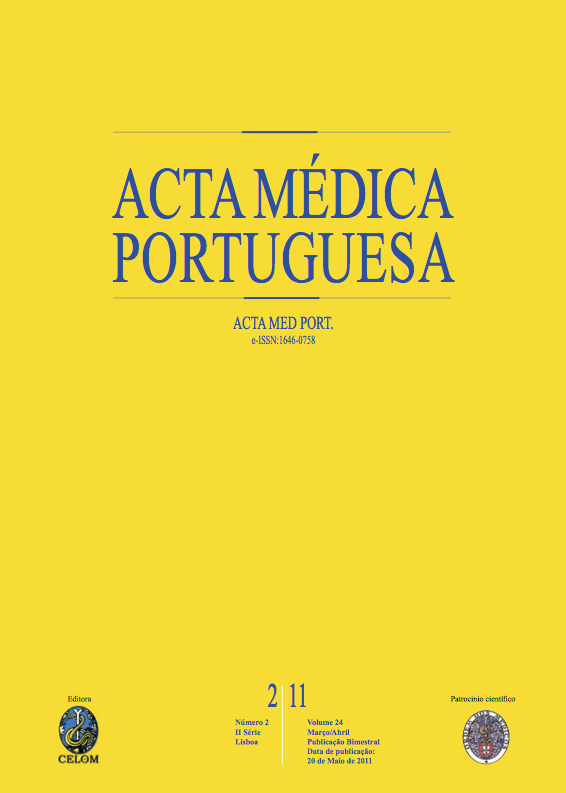Realities and professional expectations of medical students attending Guinea Bissau's medical school in 2007 school year.
DOI:
https://doi.org/10.20344/amp.1623Abstract
In Guinea Bissau, the majority of university level professionals are still being trained abroad and most of them do not return to their country. This was a major incentive for creating Guinea Bissau's Medical School. An observational, cross-sectional, analytic study was conducted on the second trimester of 2007 to characterize the socio-demographic, familial and educational profile of medical students, their satisfaction levels, difficulties and expectations concerning the medicine course. A questionnaire was used and a response rate of 63% achieved (81 students). Data was analyzed using SPSS v.17 for descriptive statistics. Students are very committed to their education. They tend to decide to take the medicine course early in their lives and are influenced by their relatives. They choose to be medical doctors because they like it but also for altruistic reasons and the desire to save lives. Although many face financial and material difficulties, they tend to have success in their academic live. They live with their parents, do not have children and some have side jobs to provide for extra income to help with their education. They expect their education to make them good doctors in any part of the world and want to work simultaneously in the public (to serve their country and pay their debt to the State) and in the private sector (to enhance their income). The large majority wants to work in a hospital, in Bissau, and to be a pediatrician or obstetrician. They have unreasonably high expectations concerning their future income as medical doctors.Downloads
Downloads
How to Cite
Issue
Section
License
All the articles published in the AMP are open access and comply with the requirements of funding agencies or academic institutions. The AMP is governed by the terms of the Creative Commons ‘Attribution – Non-Commercial Use - (CC-BY-NC)’ license, regarding the use by third parties.
It is the author’s responsibility to obtain approval for the reproduction of figures, tables, etc. from other publications.
Upon acceptance of an article for publication, the authors will be asked to complete the ICMJE “Copyright Liability and Copyright Sharing Statement “(http://www.actamedicaportuguesa.com/info/AMP-NormasPublicacao.pdf) and the “Declaration of Potential Conflicts of Interest” (http:// www.icmje.org/conflicts-of-interest). An e-mail will be sent to the corresponding author to acknowledge receipt of the manuscript.
After publication, the authors are authorised to make their articles available in repositories of their institutions of origin, as long as they always mention where they were published and according to the Creative Commons license.









